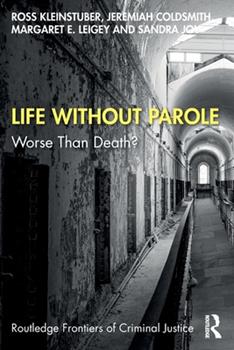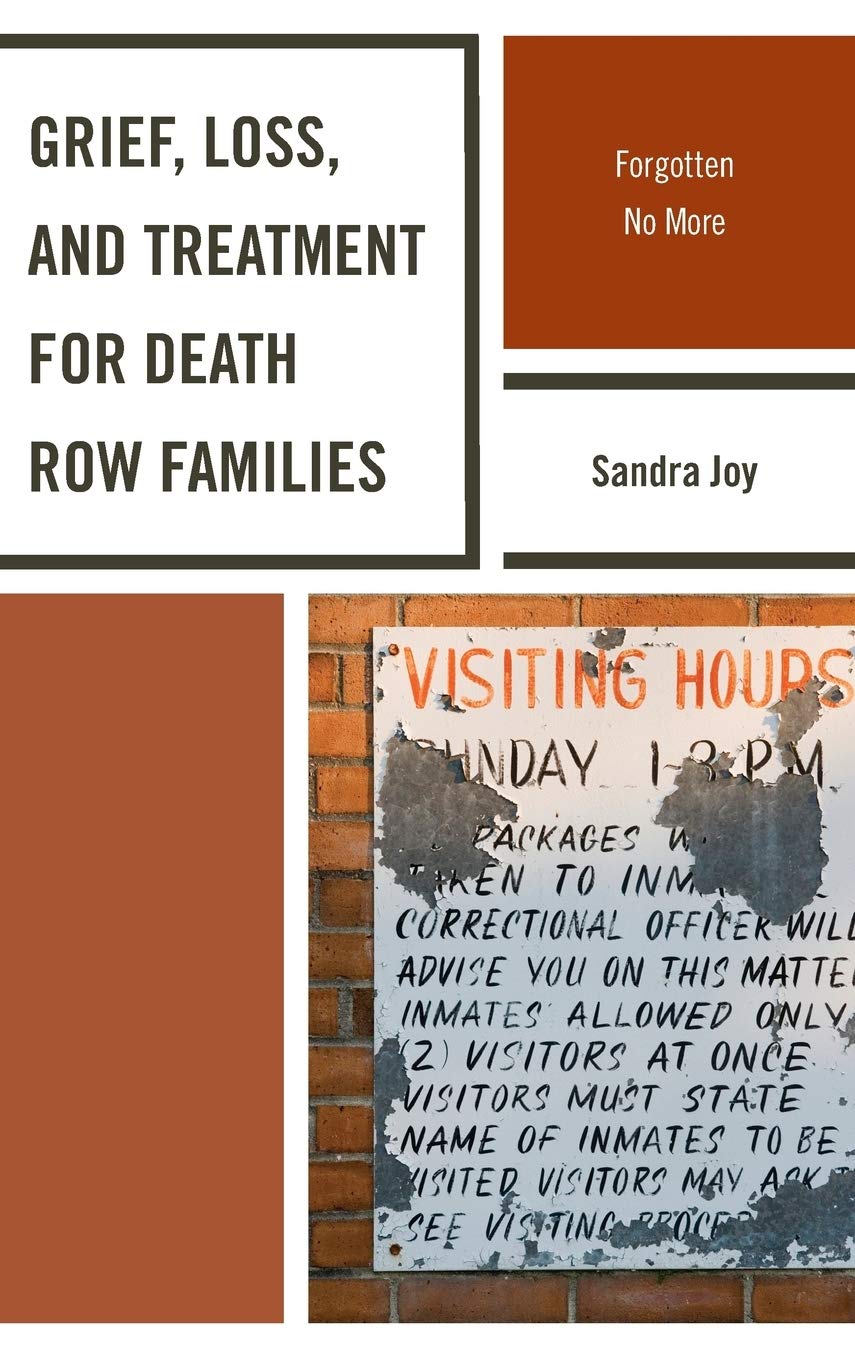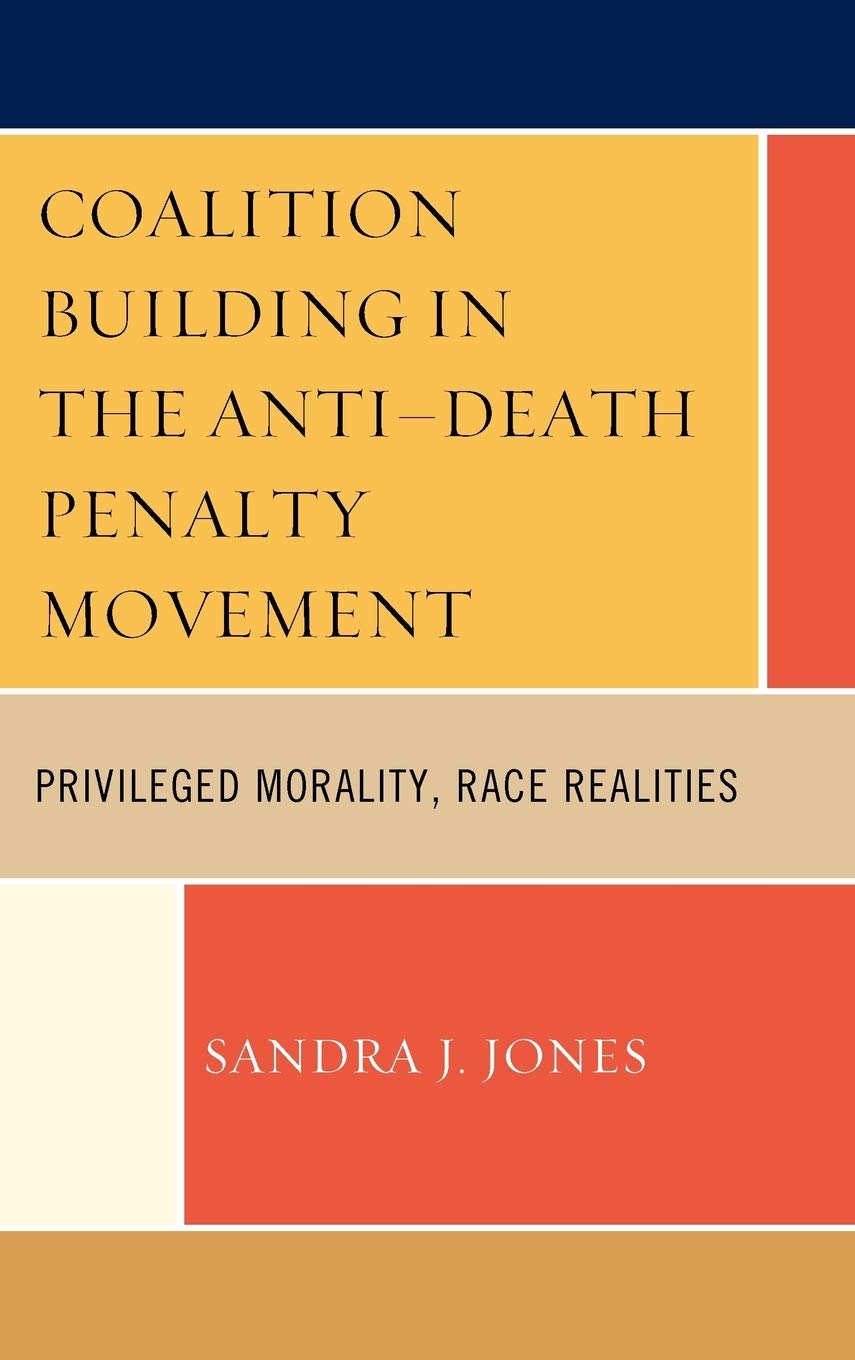My Work
2013 Meeting of United Nations Human Rights Council in Geneva, Switzerland
Life Without Parole: Worse Than Death?
by Ross Kleinstuber, Jeremiah Coldsmith, Margaret E. Leigey, and Sandra Joy This book is an in-depth critical examination of all pertinent aspects of life without parole (LWOP).
Empirically assessing key arguments that advance LWOP, including as an alternative to the death penalty,
it reveals that not only is the punishment cruel while not providing any societal benefits, it is actually
detrimental to society. Over the last 30 years, LWOP has exploded in the United States. While the use of
capital punishment over that same time period has declined, it must be recognized that LWOP is, in fact, a
hidden death sentence. It is, however, implemented in a way that allows society to largely ignore this truth.
While capital punishment has rightfully been subject to intense debate and scholarship, LWOP has mostly
escaped such scrutiny. In fact, LWOP has been touted by both death penalty abolitionists and by tough-on-crime
conservatives, which has allowed it to flourish under the radar. Specifically, abolitionists have advanced
LWOP as a palatable alternative to capital punishment, which they perceive as inhumane, error-prone, costly,
and racially biased. Conservatives, meanwhile, advocate for LWOP as an effective means of fighting crime, a
just form of retribution, and necessary tool for managing incorrigible offenders. This book seeks to tap into
and help inform this growing debate by subjecting these key arguments to empirical scrutiny.
This book is an in-depth critical examination of all pertinent aspects of life without parole (LWOP).
Empirically assessing key arguments that advance LWOP, including as an alternative to the death penalty,
it reveals that not only is the punishment cruel while not providing any societal benefits, it is actually
detrimental to society. Over the last 30 years, LWOP has exploded in the United States. While the use of
capital punishment over that same time period has declined, it must be recognized that LWOP is, in fact, a
hidden death sentence. It is, however, implemented in a way that allows society to largely ignore this truth.
While capital punishment has rightfully been subject to intense debate and scholarship, LWOP has mostly
escaped such scrutiny. In fact, LWOP has been touted by both death penalty abolitionists and by tough-on-crime
conservatives, which has allowed it to flourish under the radar. Specifically, abolitionists have advanced
LWOP as a palatable alternative to capital punishment, which they perceive as inhumane, error-prone, costly,
and racially biased. Conservatives, meanwhile, advocate for LWOP as an effective means of fighting crime, a
just form of retribution, and necessary tool for managing incorrigible offenders. This book seeks to tap into
and help inform this growing debate by subjecting these key arguments to empirical scrutiny.
Grief, Loss, and Treatment for Death Row Families: Forgotten No More
by Sandra Joy The families of death row inmates are rarely considered in public discourse regarding the death penalty.
They have largely been forgotten, and their pain has not been acknowledged by the rest of society. These families
experience a unique grief process as they are confronted with the loss of their loved one to death row and brace
themselves for the possibility of an execution. Death row families are disenfranchised from their grief by the
surrounding community, and their; mental health needs exacerbated as they struggle in isolation with the ambiguous
loss that comes with the fear that the state will kill their loved one. Grief, Loss, and Treatment for Death Row
Families describes the grief that families experience from the time of their loved one’s arrest through his or
her execution. In each chapter, Sandra Joy guides the reader through the grief process experienced by the families,
offering clinical interventions that can be used by mental health professionals who are given the opportunity to
work with these families at various stages of their grief. The author conducted over seventy qualitative interviews
with family members from Delaware who either currently have a loved one on death row or have survived the execution
of their loved one. Delaware was chosen because though it has a relatively small death row, it is ranked third in
the nation with its rate of per capita executions. This book provides an in-depth awareness of the grieving process
of death row families, as well as ways that professionals can intervene to assist them in healing. With increased
awareness and effective clinical treatment, we can ensure that the families of death row inmates are forgotten no more.
The families of death row inmates are rarely considered in public discourse regarding the death penalty.
They have largely been forgotten, and their pain has not been acknowledged by the rest of society. These families
experience a unique grief process as they are confronted with the loss of their loved one to death row and brace
themselves for the possibility of an execution. Death row families are disenfranchised from their grief by the
surrounding community, and their; mental health needs exacerbated as they struggle in isolation with the ambiguous
loss that comes with the fear that the state will kill their loved one. Grief, Loss, and Treatment for Death Row
Families describes the grief that families experience from the time of their loved one’s arrest through his or
her execution. In each chapter, Sandra Joy guides the reader through the grief process experienced by the families,
offering clinical interventions that can be used by mental health professionals who are given the opportunity to
work with these families at various stages of their grief. The author conducted over seventy qualitative interviews
with family members from Delaware who either currently have a loved one on death row or have survived the execution
of their loved one. Delaware was chosen because though it has a relatively small death row, it is ranked third in
the nation with its rate of per capita executions. This book provides an in-depth awareness of the grieving process
of death row families, as well as ways that professionals can intervene to assist them in healing. With increased
awareness and effective clinical treatment, we can ensure that the families of death row inmates are forgotten no more.
Coalition Building in the Anti-Death Penalty Movement: Privileged Morality, Race Realities
by Sandra Joy While a great deal of research has been done about many aspects of the death penalty, very little attention
has been paid to the movement organized against it. Coalition Building in the Anti-Death Penalty Movement fills
that gap with an empirical examination of the external and internal factors that shape the role race plays in the
anti-death penalty movement. While the death rows across the U.S. are overwhelmingly filled with racial minorities
and the poor, the ranks of the anti-death penalty movement are dominated by white, middle-class professionals.
The attention given to race arises out of this racial distinction between death row inmates and the activists who
advocate for them. By conducting interviews with white, black, and Latino anti-death penalty activists, this book
examines the influence of race on the mobilization of activists and their approach toward abolition. The concepts
of political opportunity, mobilizing structures, and framing provided by the political process model, are used to
describe the complex manner in which moral opposition to the death penalty is shaped by the racial realities of
the activists. Although racial tensions lie just below the surface, they nonetheless create real obstacles for
the movement as it strives to build a racially diverse coalition of activists aimed at death penalty abolition.
While a great deal of research has been done about many aspects of the death penalty, very little attention
has been paid to the movement organized against it. Coalition Building in the Anti-Death Penalty Movement fills
that gap with an empirical examination of the external and internal factors that shape the role race plays in the
anti-death penalty movement. While the death rows across the U.S. are overwhelmingly filled with racial minorities
and the poor, the ranks of the anti-death penalty movement are dominated by white, middle-class professionals.
The attention given to race arises out of this racial distinction between death row inmates and the activists who
advocate for them. By conducting interviews with white, black, and Latino anti-death penalty activists, this book
examines the influence of race on the mobilization of activists and their approach toward abolition. The concepts
of political opportunity, mobilizing structures, and framing provided by the political process model, are used to
describe the complex manner in which moral opposition to the death penalty is shaped by the racial realities of
the activists. Although racial tensions lie just below the surface, they nonetheless create real obstacles for
the movement as it strives to build a racially diverse coalition of activists aimed at death penalty abolition.